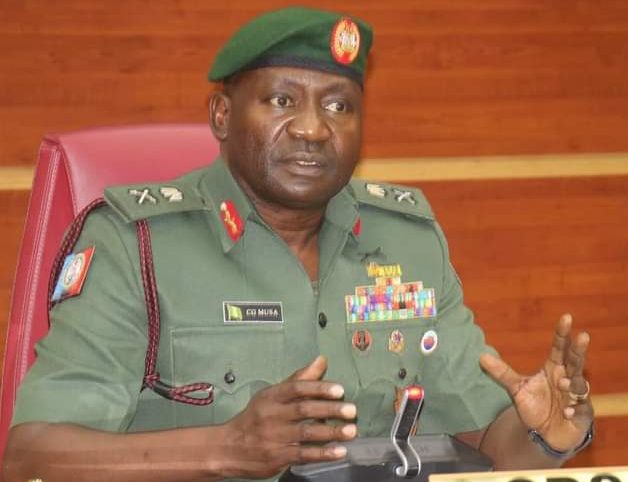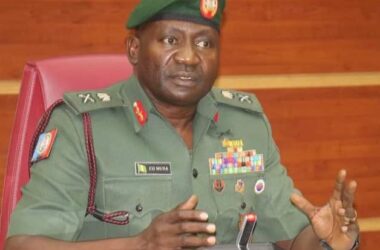By Kennedy Elaigwu Awodi
General Christopher Gwabin Musa, Chief of Defence Staff (CDS), has emerged as a figure of resolute leadership in a period marked by profound security challenges. His tenure, though still unfolding, has been characterized by a multi-pronged approach that seeks to address the multifaceted threats facing Nigeria. While the specter of terrorism continues to loom large, exacerbated by the insidious flow of international support to these nefarious groups, General Musa’s strategic vision and operational execution have demonstrably stemmed the tide, preventing what could have been a far more catastrophic descent into chaos.
One of General Musa’s most significant achievements lies in his nuanced approach to counter-insurgency. Recognizing that military might alone cannot vanquish deeply rooted conflicts, he has prioritized the fostering of robust civil-military relations. This is not merely a matter of public relations; it is a strategic imperative. By engaging with local communities, through initiatives like the Peace and Unity Football Tournament in Jos, he is building bridges of trust and cooperation. Such initiatives are crucial in gathering vital intelligence, disrupting recruitment networks, and ultimately, undermining the support base of terrorist organizations.
His efforts to restructure the Nigerian Army also deserve commendation. The commissioning of the Defence Holding Company Limited, for instance, signals a commitment to modernization and self-reliance. This is not just about acquiring advanced weaponry; it’s about building a sustainable and adaptable military capable of responding to the evolving nature of threats. His focus on strategic planning and policy formulation, evidenced by his leadership of the Defence Planning Committee, underscores a proactive approach to national security.
Furthermore, General Musa’s emphasis on border security is critical. The porous nature of Nigeria’s borders has long been a conduit for illicit activities, including the trafficking of arms and the movement of insurgents. By strengthening border security measures, he is working to choke off the supply lines that fuel instability. This is a complex undertaking, requiring not only enhanced surveillance and patrols but also close cooperation with neighboring countries.
It must be acknowledged that the fight against terrorism in Nigeria is an uphill battle. The insidious flow of international support, be it financial, logistical, or ideological, provides a lifeline to these groups, enabling them to perpetuate their violence. Were it not for these external factors, one could argue that General Musa’s efforts would have achieved even greater success in definitively nipping terrorism in the bud.
However, General Musa’s leadership extends beyond the battlefield. His commitment to social responsibility, demonstrated by his support for the Potter Gallery Initiative, showcases a holistic understanding of security. True and lasting peace cannot be achieved through military might alone; it requires addressing the root causes of conflict, including social inequality and marginalization.
While challenges remain, General Musa’s tenure has been marked by a clear sense of purpose and a commitment to building a more secure and inclusive Nigeria. His strategic vision, operational acumen, and dedication to fostering civil-military relations provide a solid foundation for continued progress. His efforts in strategic planning, modernization and humanitarian aid also show a well rounded leader. With continued dedication and commitment from all stakeholders, Nigeria can overcome its security challenges and build a brighter future.
Kennedy Elaigwu Awodi writes from the, USA.









